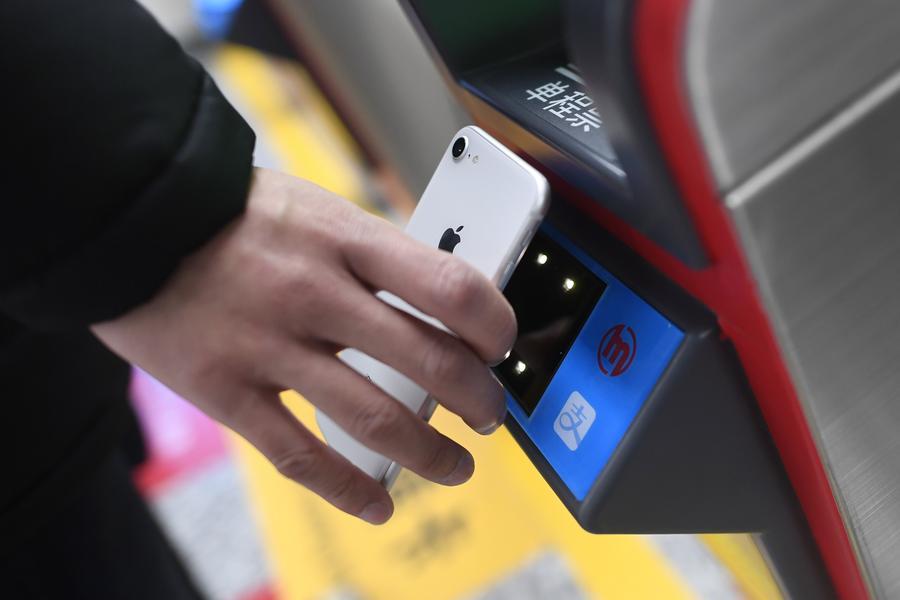
 0 Comment(s)
0 Comment(s) Print
Print E-mail China Daily, April 10, 2024
E-mail China Daily, April 10, 2024

A passenger scans a QR code of Alipay, a mobile payment app, to take subway at the Fengtan Road Subway Station in Hangzhou, capital of east China's Zhejiang Province, Dec. 27, 2017. [Photo/Xinhua]
Ant Group plans to expand mobile payment methods and build more international consumer-friendly zones across major tourist hot spots and commercial cities in China, as part of a broader push by the financial technology company to simplify payment services for foreigners in the country.
The company will improve payment services at locations most frequented by foreign visitors, including key transportation hubs like entry and exit ports, high-speed railway stations, ride-hailing areas, as well as tourist attractions, hotels, and shopping districts, said Xue Hongyan, general manager of global business services at Ant Group.
Xue said the company aims to expand cooperation with more international bank cards organizations and overseas e-wallets, further enrich both the online and offline consumption scenarios for foreigners in China, and ensure that foreigners in China can use mobile payments without any hurdles.
Ant Group launched an initiative to build the country's first international consumer-friendly zone at the Solana shopping complex in Chaoyang district of Beijing on Monday, and hopes to expand such zones in 16 cities nationwide in the next six months.
Working with local merchants, tourism sites and commercial districts, the initiative is expected to significantly enhance the accessibility and convenience of mobile payments for international visitors and drive business growth for local merchants.
Currently, the company offers two mobile payment alternatives for overseas visitors.
Foreigners can choose to bind major international bank cards, including Visa and Mastercard, to its mobile payment app Alipay to access an array of local services from shopping, dining, ride-hailing to public transportation, without a local bank account or phone number.
Alipay+, a suite of cross-border mobile payment and digitalization technology solutions developed by the international business unit of Ant Group, has enabled overseas e-wallet users from countries including South Korea, Singapore, Thailand, Malaysia and Mongolia, to pay with their home e-wallets across the nation.
The company has said that users of NayaPay, Pakistan's leading fintech platform, have been allowed to make payments with their e-money accounts at its extensive network of 80 million merchants nationwide as bilateral trade and visits increase. This brings the total number of overseas e-wallets accepted on the Chinese mainland to 11.
The State Council, China's Cabinet, published a guideline on improving payment services and enhancing payment convenience in March, in order to better meet the diversified payment needs of the elderly and foreign visitors.
The intensified efforts to build up international consumer-friendly zones will help remove the various inconveniences and confusion encountered by overseas visitors in China, and lay a solid foundation for improving their mobile payment experiences and enrich consumption scenarios, said Wang Pengbo, a senior analyst at market consultancy Botong Analysys.
He said providing convenient payment services for foreigners is not only part of the deepened opening-up of China's payment sector, but is also conducive to bolstering the internationalization of the country's financial sector.
Rana, a tourist from Pakistan, said he just needs to complete payments by using NayaPay, the familiar home e-wallet on his mobile phone, without downloading new apps or using cash.
Chao Zhan, vice-president of NetsUnion Clearing Corp, said the Chinese online payment clearing house will actively provide interconnection clearing support for mobile payment services both at home and abroad, and support the two payment services: binding international cards to domestic payment apps and the use of overseas e-wallets in China.